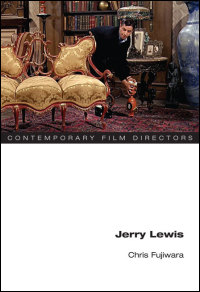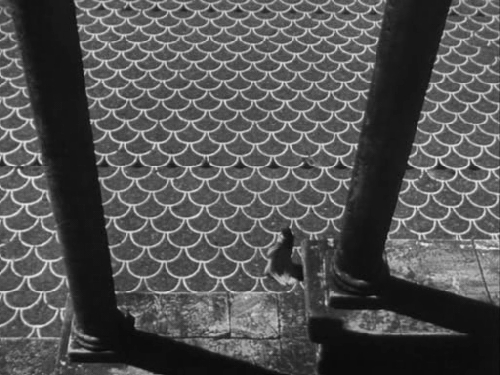From Cineaste (Spring 2010; Vol. XXXV, No. 2). Considering the continuing lack of contact between most Americans and the remainder of the world, it probably shouldn’t be too surprising to find James Wolcott still rattling on about the alleged French worship of Jerry Lewis in the September 2011 Vanity Fair — a myth addressed briefly in my second paragraph here, whose limited factual basis in fact hasn’t really been operative for almost half a century. As Lewis himself has often pointed out, his popularity in many places around the world has clearly surpassed his reputation in France. (Today, for instance, Woody Allen is immensely more popular there, with intellectuals as well as the general public — and more popular there than he has ever been in the U.S., which has never been true with Lewis.) But presumably this cherished piece of idiocy will continue to be trotted out as long as Americans remain clueless about France and its culture and proud of its ignorance. It’s a little bit like saying, “Oh, those naughty French — ooo-la-la!” — J.R.
Jerry Lewis
by Chris Fujiwara. Urbana/Chicago: University of Illinois Press,
162 pp., illus. Hardcover: $60.00. Paperback: $19.95.

I hope I can be forgiven for repeating an anecdote I recounted in these pages in 2004,while writing about Charlie Chaplin’s films on DVD. Read more
A lecture written circa fall 2002, I forget for which occasion. I’m not even sure if this represents a complete or final draft. This was written before the belated rediscovery of The Third Man in Vienna (not one of the better episodes in Around the World with Orson Welles, alas, and now available on DVD). — J.R.



My point of departure for this paper is remarks that have been made by myself and others about Orson Welles’ three completed features of the 1950s —- Othello, Mr. Arkadin, and Touch of Evil—- and how these reflect his attitudes towards what was happening in the United States around the same time. More specifically, I’m thinking of my own speculation that Othello (1952) may have something to do with the Hollywood blacklist and witch hunts, and James Naremore’s observation that the character of Van Stratten (Robert Arden) in Mr. Arkadin (1955), “quite by accident, bears an uncanny resemblance to a young, athletic Richard Nixon,” relates to the Cold War (with Arkadin having been modeled to some degree on Josef Stalin and the character of Van Stratten suggesting Richard Nixon in certain respects).
Now I hasten to add that the conscious intentionality of Welles in relation to either of these relationships or many others like them probably fluctuates a good deal, and that this isn’t my only frame of reference. Read more
From the Chicago Reader (June 14, 1996). — J.R.

Films by Abbas Kiarostami
By Jonathan Rosenbaum
This month is an unusually rich one at the Film Center, especially for work that’s generally unavailable. Every Thursday there’s a classic film noir, with the rarely screened ultraminimalist Murder by Contract (1958) a particular highlight. Every Friday and Tuesday there are features by the late mannerist maestro Jean-Pierre Melville — an innovative director of French art movies (The Silence of the Sea, Les enfants terribles) who eventually became a specialist in American-style gangster films (Le doulos, Second Breath, Le samourai) and a homoerotic cult favorite of Quentin Tarantino and John Woo. (Catch Melville’s 1965 Second Breath this Friday and marvel at the bizarre sensibility and consummate craft that combine to lovingly duplicate the texture of a cheesy, nondescript Columbia Pictures noir of the 50s.) And best of all is a program devoted to Iranian master Abbas Kiarostami, including his four major features, over the next two weekends.
Both the Melville and the Kiarostami retrospectives are close to being complete. The missing Melville titles are 24 Hours in the Life of a Clown (his only short film, 1946), When You’ll Read This Letter (1953), and The Elder Ferchaux (1962), but no less than 11 features are showing this month. Read more





